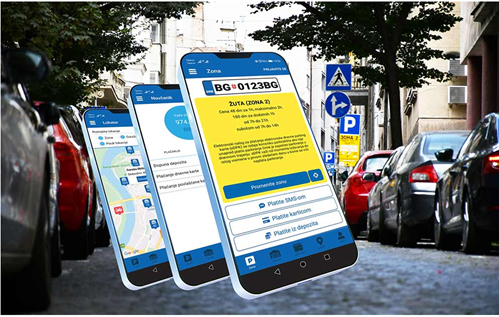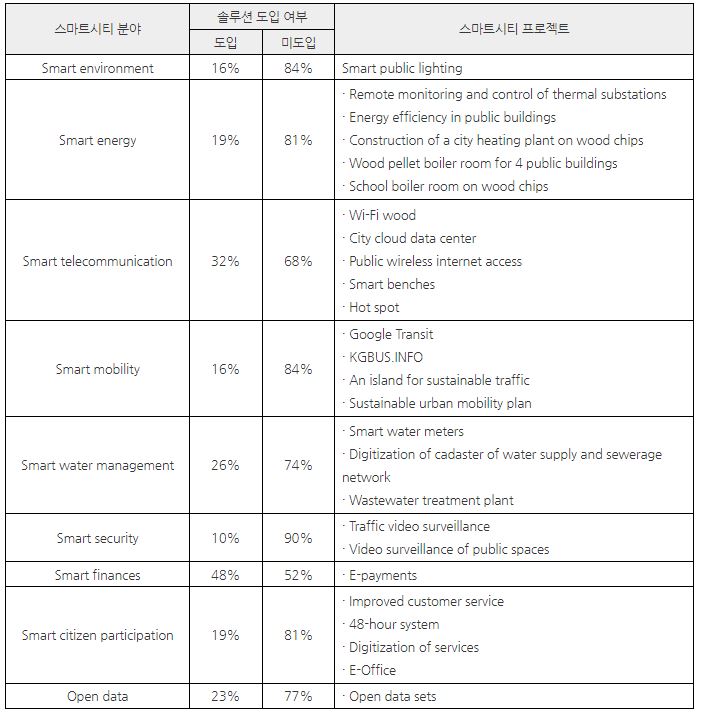– A smart city that evolves from overcoming COVID-19 to building a resilient city –
– Awareness of the need to build a smart city centering on smart energy solutions is increasing –
개요
The Friedrich Naumann Foundation for Freedom (FNF) established the SmartCity Education Initiative (SCEI) in the Western Balkans in 2014. The initiative aims to help the major cities of the Balkans embrace new technologies and achieve urban development through innovation. SCEI mainly provides education and networking to local governments and related organizations, including the Smart City Festival held annually in Belgrade since 2017. This event, co-hosted by FNF, SCEI, and partner organizations, has established itself as a major event in the western Balkans related to smart cities. Belgrade Trade Center attended the Smart City Festival 19 held for two days from October 20th to 2021th to learn about smart city trends in the Balkans.
Smart City Festival 2021
In 2020, the theme of how smart cities can be used to overcome the COVID-19 crisis, the world's biggest challenge, was selected as the theme. . Smart City Festival 2021 was held as a semi-online event with experts from the Western Balkans as well as Canada, Korea, Germany, Belgium and Austria. Keynotes were prepared for each of the opportunities for digitalization, the value chain, and the city of the future. At the KOTRA Belgrade Trade Center, the main contents of each session were summarized.
Smart people before smart cities
The COVID-19 pandemic has made many people, organizations and businesses more dependent on technology, necessitating drastic and rapid changes in the way organizations operate and live. When faced with the same demands of the times, some succeed and others fail. Through these experiences, it is not just a simple technology itself, but people who will use it must first become smart, and the need for an education revolution is confirmed to nurture these people. While the level of technology is advancing at a rapid pace, people have embraced new technology in the old way. Education that can teach you to think critically and adapt to the technological revolution will be a key factor in completing the smart city of the future.
Turn crisis into opportunity
As the COVID-19 pandemic paralyzed the medical system, we experienced that even patients unrelated to COVID-19 were excluded from the medical system. In particular, compared to other fields, the public health system was hardly digitized and the decision-making process was slow. Solaborate has developed Hello Monitor to solve the high barrier problem of the existing medical system through the COVID-19 pandemic. Hello Monitor is a remote patient monitoring system through artificial intelligence analysis by observing the patient's visual and auditory signals through a camera when access to the medical system is difficult due to an epidemic.
The Art of Turning Disaster into Prosperity panel discussion scene

Create a value chain
Digital solutions and services are flooding the market. Therefore, it is important to present a unique value chain rather than selling a single solution. The key to enabling users to embrace new technologies is the value chain. This is because, in order to implement and use the technology, it is necessary to configure the environment to implement the technology. Serbia, for example, is currently undergoing a digital transformation of its parking service. All information for using public parking services, such as parking spaces, parking tickets and prepaid cards, is provided through a smartphone app. Citizens are trying to reduce the inefficiency caused by the parking problem through the app.
Parking service Application

Building resilient cities of the future
One of the important points pointed out several times throughout the festival was that in order to build a smart city, it is necessary to keep in mind the application of “technology that is resilient to future threats”. Parking tech company EasyPark recently published a study on the resilience of future cities. The study identified four factors that determine a city's future-resilient index: 1) digital life, 2) mobility innovation, 3) business technology infrastructure, and 4) environmental sustainability.
Serbia's Smart City Project
According to a study conducted by the Friedrich Naumann Freedom Foundation (FNF) in 2020 municipalities across Serbia in September and October 9, smart city solutions in most municipalities in Serbia do not interoperate between cities or have not implemented smart city solutions. In the case of local subsidies that introduced smart city solutions, most (31%) implemented smart financial solutions in the form of electronic payments. In second place in the smart city project area are smart communication projects such as Wi-Fi access and cloud data centers (48%), followed by smart water management (2%).
Serbia Smart City Project Promotion Research Status

Problems in Serbia's Smart City Development
The biggest problem in Serbia's smart city development is that the project is not progressing due to lack of funds. According to FNF, 31 out of a total of 24 local governments are experiencing difficulties in financing smart city projects. Lack of expertise and experience in each city is also cited as a reason for delaying the adoption of solutions. Nevertheless, most cities are pushing for the introduction of smart energy solutions, especially to improve energy efficiency and use of renewable energy. Moreover, due to the recent increase in electricity rates across Europe, cities are paying keen attention to smart energy management issues.
implication
As mentioned earlier, over the past year, the smart city industry in the Balkans has focused on preparing countermeasures to overcome the COVID-1 crisis. Such focus is shifting to measures to return to normal society after COVID-19. It is true that Serbia does not yet have the infrastructure to build a smart city. However, as the demand for digital transformation in each area continues, and practical tasks such as the EU's plan to impose a carbon border tax and increase in electricity rates occur, the need to build a smart city centering on smart energy solutions is gaining sympathy. It is expected that the Serbian government will take steps to build a smart city in the future.



